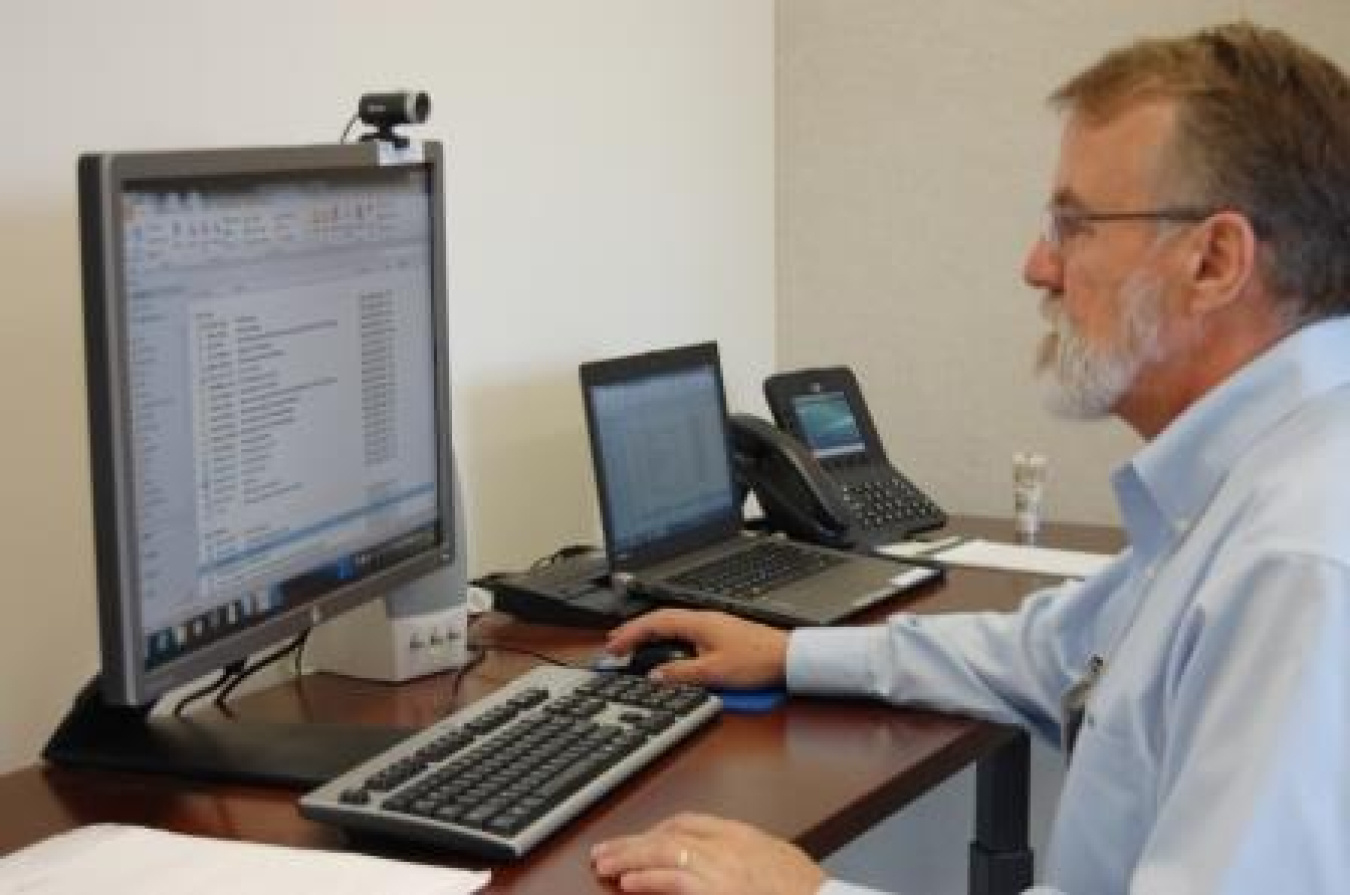Profiles in Leadership is a series of interviews with senior executives in the Office of Fossil Energy (FE). In this edition we talk to David Mohler, Deputy Assistant Secretary for Clean Coal and Carbon Management.
Hydrocarbons and Geothermal Energy Office
August 6, 2015
Profiles in Leadership is a series of interviews with senior executives in the Office of Fossil Energy (FE). In this edition we talk to David Mohler, Deputy Assistant Secretary for Clean Coal and Carbon Management.
Describe your role in FE.
I’m leading a really stellar team of people who are working on how to utilize coal in ways that will protect the quality of our air, our water and our climate. We’re focused in three basic areas: advanced combustion technologies; carbon capture; and carbon utilization and sequestration.
What’s an average day like for you?
There’s no average day, but I tend to start pretty early. I normally begin my day at 5:30 a.m. I go to the gym and work out, and then come into the office and start working. There are a number of projects and programs underway here, many of which require a lot communication and negotiating – not only within the Forrestal Building but outside the building, as well. We do a good bit of our work in partnership with other organizations – universities, labs, international entities – and a lot of the day will be spent working with those folks.
So the primary activities that make up my day are making sure that the programs and the work in process go well, and that we continue to think strategically about where they go next and how they’ll be applied to create value. And the other thing is to communicate and negotiate with our partners and our stakeholders.
What did you want to accomplish when you came to FE?
I saw a huge opportunity on both the professional and the personal levels. On the professional level, there’s a terrific team of people here in FE and DOE. I really respect the Secretary and what he’s trying to do. So the opportunity to work with them figured strongly in my decision to come here. I also think the timing is right to move the ball forward in terms of carbon management, and we’re well positioned here to make significant advances.
Also on the professional level, as a senior executive at a major utility company, my responsibilities and assignments were broad in scope. Working here gives me the opportunity to go deeper in the areas of advanced combustion technology and carbon capture, utilization and storage.
From a personal perspective, I’ve never been in government before. I’ve always been in the private sector. So for me it’s an adventure and a learning experience. How many times do you get the opportunity to do something like this?
What have you learned in the process?
One thing I really didn’t understand before I came to FE is the richness and the scope of what’s going in the focused research areas here. There’s a lot more going on than I thought – and there’s more work that’s already been done than I thought.
The other thing I’m discovering through my interactions here is energy’s role in statecraft and how we act geopolitically on energy issues. That’s an interesting new perspective for me.
What’s the most exciting thing on the horizon for clean coal technologies?
There are several things, actually. But one thing that I’m really excited about is the idea is that we’re going to be able to find new ways to create value with CO2 as a valuable commodity. It’s not only possible, but I believe we’re going to crack the code on it and that will become critical to how we manage carbon going forward.
Tell us something about yourself that’s not in your official bio.
My wife and I have two children. Our son is a furniture designer and craftsman. Our daughter is an actress – and she also performs with penguins at an aquarium in Ohio.
Thanks David.

